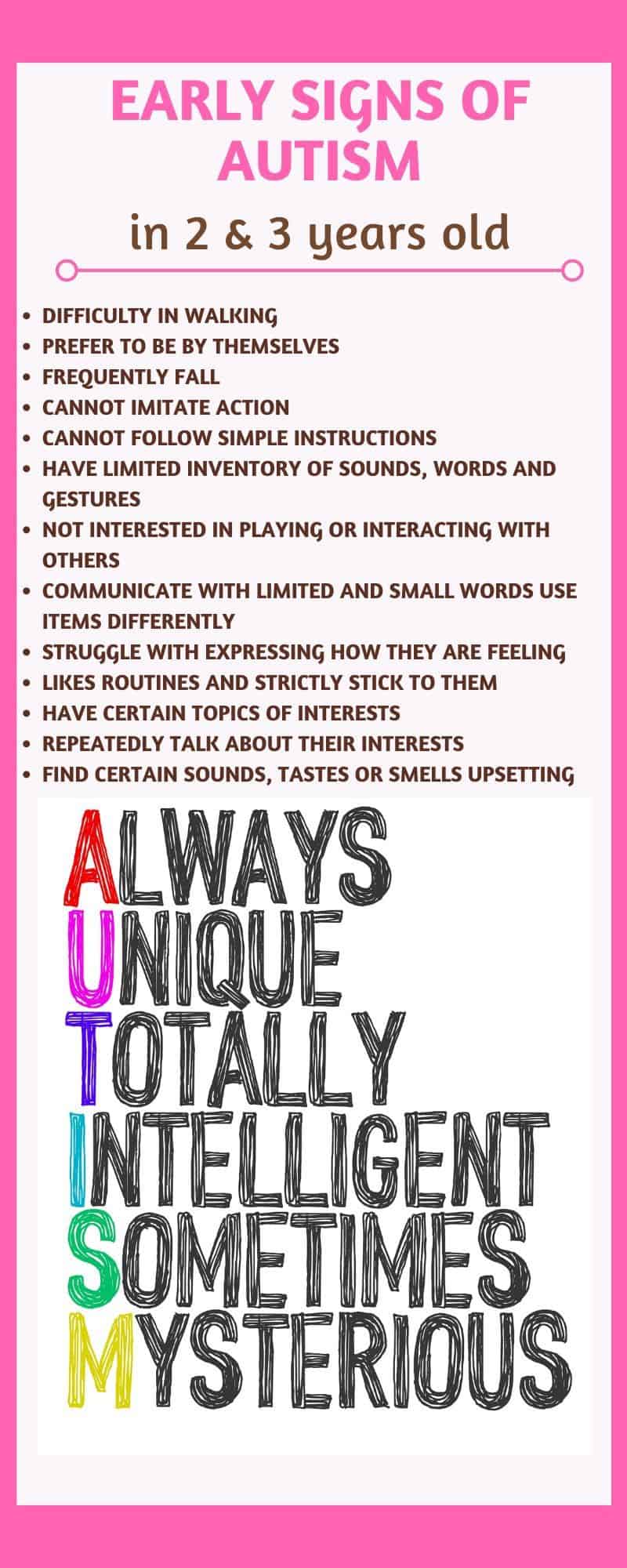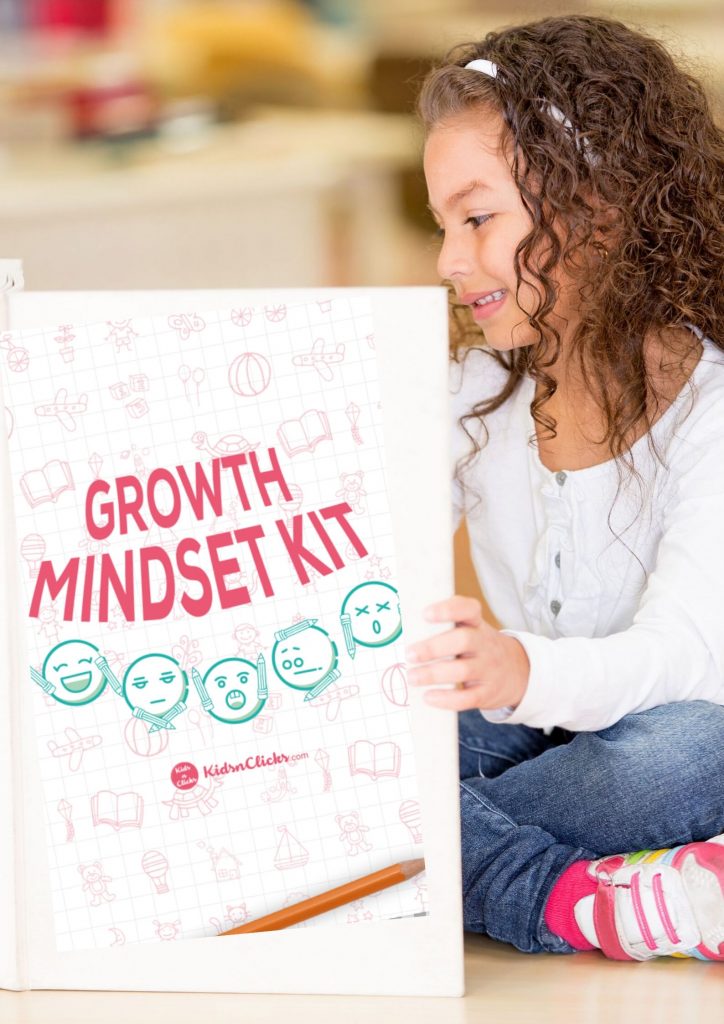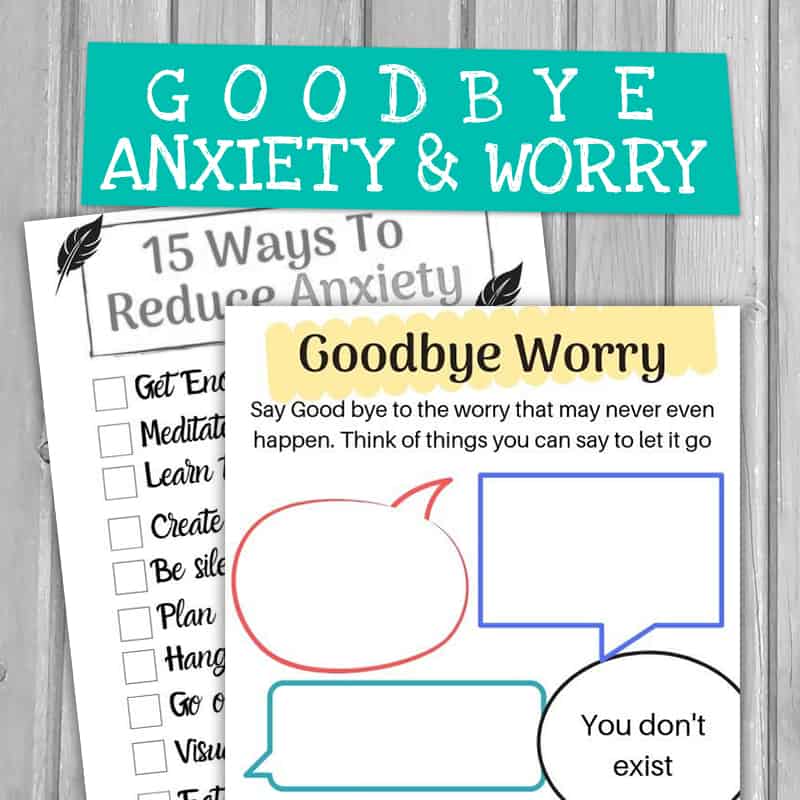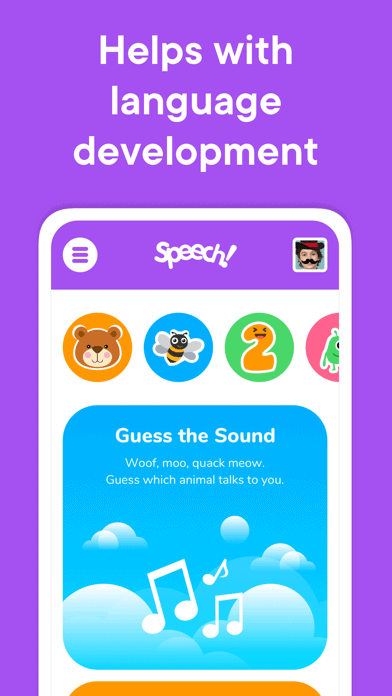Autism Spectrum Disorder (ASD) is a developmental disorder and there are different signs of autism that can be detected in very young children.
Autism affects communication and behavior in individuals who have it. While autism can be diagnosed at any age, the signs of autism generally become apparent in the first couple of years of life.
In this blog post we will look into the signs of autism in toddlers and speech treatment for autistic children.
Signs of Autism in Toddlers:
There are different signs of autism and it can vary from one person to another.
The severity of the disorder also changes depending on the age and developmental level of the child.
This makes it difficult to specify a certain sign to a certain age.
However, there are some signs of autism in toddlers that can mean the child is on the spectrum.
The signs of autism may become more apparent as the child grows up. The following are some of the signs seen in toddlers with ASD.
Possible signs of autism in infants when they don’t do the following:
- Pay attention to new faces
- Smile
- Use gestures like waving or pointing
- Babble or laugh
- Follow objects with their eyes
- Utter words
- Turn their head to attractions
- Crawl
Common Signs of autism in toddlers aged 2 and 3:
- Difficulty in walking or being on their toes
- Prefer to be by themselves
- Frequently fall
- Cannot imitate actions
- Cannot follow simple instructions
- Have a limited inventory of sounds, words, and gestures
- Not interested in playing or interacting with others
- Limited communication and use small words
- Use items differently (lining up the toy cars instead of playing with them)
Other signs of autism in toddlers:
- Come across as indifferent
- Difficulty in understanding concepts
- Struggle with expressing feelings
- Difficulty in understanding others’ thoughts or feelings
- Like routines and strictly stick to them
- Have certain topics of interests
- Repeatedly talk about their interests
- Find certain sounds, tastes or smell upsetting

Compared to the signs presented early on, these may be more noticeable.
However, this does not mean that a child with autism will show all of the symptoms or a child showing a couple of the signs has ASD.
The majority of children with autism are not diagnosed before the age of two due to missed signs or lack to access to specialists.
How early can signs of autism be detected?
Studies conducted on ASD have shown that the disorder can be diagnosed as early as 14 months.
Autism spectrum disorder usually appears in the early ages of the individual.
There are certain milestones that children hit around certain times in their first years.
For instance, before they turn 1 year of age, babies respond when spoken to and use simple gestures like shaking head. This may not be the case for children with autism.
This information makes the first year of an infant crucial in terms of early diagnosis of the disorder.
Children on the autism spectrum show developmental differences compared to their neurotypical peers.
These differences can especially be noticed in the social and language skills of the child.
Although every child develops at different rates and stages, these milestones should be observed in order to see if the child has autism or not.
Related : Signs of autism in girls
Early diagnosis would allow caregivers to provide the most suitable interventions and training.
Also, to equip the child with skills they will need in their daily lives.
Although it is quite a difficult process, early diagnosis of autism spectrum disorder would provide a clarity about what to provide the child.
The disorder can be detected really early within the first two years itself.
However, sometimes the symptoms are missed and the child is not diagnosed until they are teens or even adults.
If the symptoms are on the “milder” side, not “severe enough”, if the child is doing well at school and effectively communicating, for instance, this may lead the caregivers to look for some other reason for the behavioral and developmental differences.
Sometimes children are misdiagnosed. Children with autism spectrum disorder could have other related diagnoses.
Attention-deficit hyperactivity disorder (ADHD), obsessive-compulsive disorder (OCD) and some other developmental or mental disorders may be present.
Causing the child to be not properly evaluated for autism until they are older.
Moreover, studies suggest that girls and women are under-diagnosed with autism.
Boys are four times more likely to be diagnosed with ASD compared to boys.
Although the reason for this is not certainly known, there are certain theories.
A study published in Molecular Autism in 2015 suggested that symptoms of autism manifest differently in girls and women.
Also, females are better at functional social behaviors compared to males with autism, making it difficult to spot the developmental differences.
Another reason that the disorder is not caught up early could be the income and the social background of the caregivers.
Not all people have access to primary care as early as they would like.
Individuals from poorer or minority backgrounds are found to be underdiagnosed with autism.
This is caused due to lack of funds to access special education or specialists.
In addition, to the lack of resources in the communities/location they live in.
It is important to remember that although early diagnosis is a great advantage to provide the child with what they need late diagnosis also brings its own type of clarity.
As it can be a challenge if the disorder was never identified and a child will have to live with it for their entire life.
What Age do Autistic Children Talk?
Language and communication deficits are hallmark characteristics of autism spectrum disorders.
These are often evident in the early years of the child’s age.
Studies showed that toddlers with autism initiate communication or joint attention significantly less than other children.
Also, many people with autism struggle with basic expressive language skills.
Typically children utter their first words between the ages of 12 and 18 months.
While autistic children are reported to speak their first words at an average of 36 months.
Many individuals with autism have some difficulties or delays with communication and speech.
The severity of the deficits really depends on the individual and can range from mild to highly severe.
Some individuals with ASD may not speak at all. CDC states that as many as 40% of children with autism are nonverbal.
Around 25% to 30% of children with autism have some words around 12 to 18 months of age, but then lose them. Others could speak when they are in their late childhood.
Every child is unique. It is not possible to specifically tell when a child will autism talk, or talk at all.
Since language and communication deficits are core symptoms of autism, therapies should be tailored based on the child’s needs and language development level as well.
How Does Autism Affect Speech?
Communication usually begins before the child learns to talk.
Babies show interest in their surroundings, listen to the sound of human voices.
They pay attention to people’s faces and follow them with their eyes and smile at them. These are the first communication of a child.
This may not be the case for children with autism. Communication for those on the spectrum occurs differently and often times more slowly.
Children with ASD struggle with developing language skills.
They may not understand what others say to them.
Nonverbal communication could also be an issue for these individuals as they may not grasp the concepts of gestures and facial expressions, and avoid eye contact.
Since ASD affects the individual’s communication and language skills, the disorder greatly affects speech skills.
The ability to use language and communicate depends on the intellectual and social development level of the child with autism.
While some may not be able to communicate through speech or language, others could have limited speaking skills they may use in daily life.
Children with autism may also have a rich vocabulary and talk about their favorite topics in depth.
Some have difficulty understanding the meaning of words, even though they use them.
Children with ASD may not be able to understand or interpret the tone in speech.
These make it difficult for the individuals to interact with others using speech.
Language and behavior of autistic children:
There are some language uses and behaviors often found in children with autism.
-
Uneven language development:
Although not to a normal level of ability, many autistic children develop language and speech skills. However, this progress could be uneven.
They may learn and have an extensive vocabulary in a particular area of interest.
Many children with autism have strong memories and memorize the information they obtain.
Some could even be able to read before they reach the age five, but not understand what they are reading.
-
Limited interests and exceptional abilities:
Some children with autism are really talented and advanced at certain skills like music or math calculations.
Around 10% of children with autism have extremely high abilities, such as memorization or calculation.
Some may monologue in great detail about a topic they are interested in, but might not be able to carry out a two-way conversation about that same topic.
-
Lack of nonverbal communication skills:
Children with autism are usually unable to use gestures. They also avoid eye contact.
These gave great importance in social and conversational settings as a gesture like pointing could carry a lot of meaning in terms of the context.
This may also make them seem not interested.
Without such tools and lack of verbal skills cause the individuals to be frustrated as they are not able to express their feelings.
-
Rigid and repetitive language:
Autistic children who are able to speak may say things that do not really make sense or are not related to the conversation.
The child may also repeat words or sentences they heard from the TV.
This condition is called echolalia. They may use a robot-like speech.
Difference Between Autism and Speech Delay:
A child with a speech delay:
Speech delay is when a child is not developing speech and language skills at an expected rate.
Although each child develops at their own rate, there are certain milestones hit while the child is growing up in terms of speech development.
A child with a speech delay may not be able to say simple words by the time they turn 1 year old.
They may not be able to understand simple words and instructions like “stop” before the age of 18 months.
They cannot talk in short sentences when they are 3 or tell a simple story by the time they are 5.
There may be various reasons why a child develops speech delay.
The most common ones include hearing loss, slow development, and intellectual disability.
In addition, if a child is growing up in a bilingual home, the child’s speech development rate could be affected and it may take longer for them to use one or both languages they are learning.
A child with autism:
Children with autism, on the other hand, struggle with social communication challenges.
These hinder them from having meaningful connections with those around them.
They may not be interested in social responses, not imitate others’ actions, be more interested in objects rather than people, and like to be by themselves.
All of these create different behaviors and outcomes for the individual.
What makes autistic speech delay different from other speech delays is relatively easy to spot. In addition to delayed speech, children with autism also have trouble with social communication.
A child who is not speaking at the age of two may babble and use body language to react to what is around them.
They may enjoy interacting with others or use gestures to express their wants and needs.
This may mean that the child has a speech delay.
However, if a child has a few words but does not use them to communicate, repeat them over and over again, does not use gestures at all, avoids eye contact, is not interested in people around them, does not pay attention to their parents, then this may mean the child is exhibiting early signs of autism.
Speech Exercises for Toddlers:
Autism affects each child very differently.
Children with autism have a wide variety of skills and strengths, in addition to their needs.
Therefore it is important to curate and individualized therapy to target the child’s strengths and needs as best as possible.
In addition to tailored therapy, there are simple and everyday activities that can be used by parents and caregivers to help their child achieve speech and language skills.
These can encourage learning to speak and enhance communication.
In return, children with autism would have a balanced life where they can express their thoughts and feelings.
Don’t forget to check out Otsimo : Speech therapy for autistic children at home
Speech Therapy Exercises:
Here are a few examples of speech therapy exercises for toddlers that could be tried at home:
1. Communicate constantly:
Starting from birth, try to communicate with your child. When they coo, babble back at them.
If the child can focus on communication, they will be encouraged.
Don’t force them to speak all at once.
Casual conversations will help them understand what is appropriately used in what situations.
Don’t forget to use gestures.
-
Read books:
Reading age-appropriate books while also describing the pictures will grab the attention of the child.
They will have a visual aid to understand what you are naming in the pictures. This could also encourage learning new words.
-
Sing:
This is another fun way to encourage the child to speak.
Songs will help them memorize new words and they will acquire listening skills.
-
Describe activities:
While shopping for groceries, point out the vegetable and name it.
Explain what you are doing when you are cleaning the kitchen, name every item.
Use simple explanations for the items.
-
Storytelling:
This is another great tool. It will encourage your child to speak and share information.
Simple routines could be turned into little stories.
You can add the items that your child is interested in to make it even more engaging.
-
Make use of technology:
There are various great tools online to have a productive speech therapy session with your child.
These can make the activity more fun and engaging.
There are also mobile options, like Otsimo. You can use the app on your phone or tablet and access quality speech exercise materials.
Speech Therapy App For Autistic Children: Otsimo
Developed by a loving brother for his little brother, Otsimo is a special education application that teaches children with developmental delays speaking, writing, reading, and more.
It has hundreds of games developed under the supervision of educators, specialists, and parents that will give your child what they need.
What started out as helping out a brother has reached such a point that Otsimo touched the lives of thousands of special education children around the globe.
Finally, before you go don’t forget to check this out
Check out the Happy Printable Journal, packed with amazing worksheets, including ways to manage anxiety and helping children develop positive habits.

Was this helpful?
Good job! Please give your positive feedback
How could we improve this post? Please Help us.







